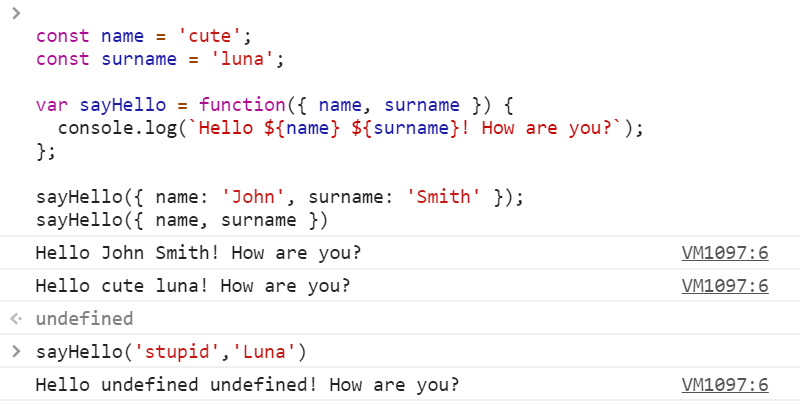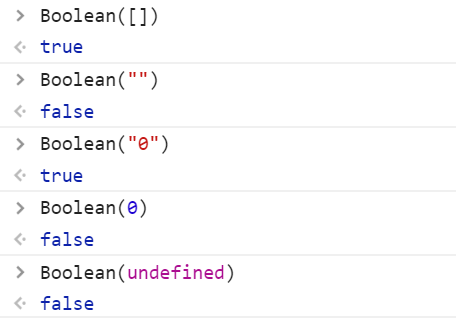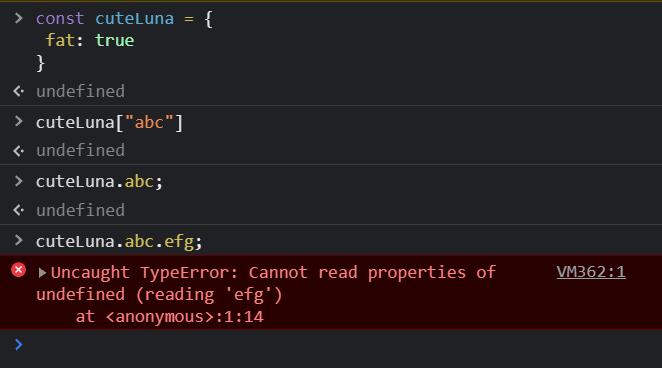const name = 'cute';
const surname = 'luna';
var sayHello = function({ name, surname }) {
var cute = 'fuck you';
var fuck = 'fuck your dick';
console.log(`Hello ${name} ${surname}! How are you?`);
console.log({cute});
console.log({cute:fuck});
};
sayHello({ name: 'John', surname: 'Smith' });
sayHello({ name, surname });
可以把上面直接貼在console,或是貼到babel玩玩












 英國腔很好聽
英國腔很好聽








